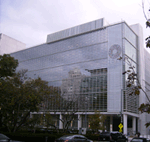Re-tooling development: civil society policy forum kicks off at World Bank Annual meetings
|
Published on Fri, 2010-10-08 11:30
Tues 6 Oct (Washington D.C) The high level panel “Towards A New Development Paradigm - Rethinking the concepts and measures of development and social progress” organized by the Friedrich-Ebert-Stiftung Foundation brought together researchers, UN officials and civil society representatives to present and debate alternative measures and models of development and well-being needed to achieve social and economic progress. The World Bank has received numerous criticisms for its way of measuring poverty through income alone as it fails to reflect a human rights approach. The Multidimensional Poverty Index (MPI), created by the Oxford Poverty & Human Development Initiative (OPHI) together with UNDP, assesses the nature and intensity of poverty at the individual level in education, health outcomes, and standard of living. The new index will feature in the upcoming edition of the UNDP Human Development Report and complements income by reflecting a range of deprivations that afflict a person’s life at the same time. Sabina Alkire, Director of OPHI said Mexico is the first country to use the index at the government level and other countries are also following such as Chile and Colombia. A new indicator for progress in the Millennium Development Goals (MDGs) was also presented by Benjamin León, research fellow at the Center for Global Development. The new MDGs progress index compares country performance against the core MDG targets on poverty, hunger, gender equality, education, child mortality, health and water. Evidence showed surprising achievements by poor countries such as Honduras far from the belief that low income countries are lagging behind. “By 2015 we probably won’t know if many countries have actually achieved the MDGs because there is no country data on a great number of goals” stated Leo. (More on this index here) “In the current development model poor countries are actually financing consumption in rich countries due to the explosion in financial flows that are not translated in better investment” said Manuel Montes, chief of development policy at the United Nations Department of Economic and Social Affairs (UNDESA). The key elements of the new development paradigm according to Montes should be: more stable economic growth; promotion of structural transformation such as active labor market policies, public investment and industrial policy; and finally State building that enforces the State’s capacity for policy making. “The controversy with the MDGs is that they are a strategy-less approach to development and that is a problem because it legitimized market oriented policies that only help the wounded” he sentenced. Civil society representatives in the audience welcomed the use of alternative indicators to monitor social progress and expressed particular concern to the fact that there is no sufficient monitoring of developed country commitment to goal 8 (financing for development), a key aspect for MDG achievement. The Social Watch network has also contributed to the use of alternative indicators to measure social progress by developing its Basic Capabilities Index (BCI), an average of three basic indicators: infant mortality, maternal health and education. The 2010 BCI shows that in the last twenty years poverty reduction has in fact slowed down indicating that the international community’s efforts have not translated into a more rapid improvement of people’s lives. See more.
|
SUSCRIBE TO OUR NEWSLETTER



